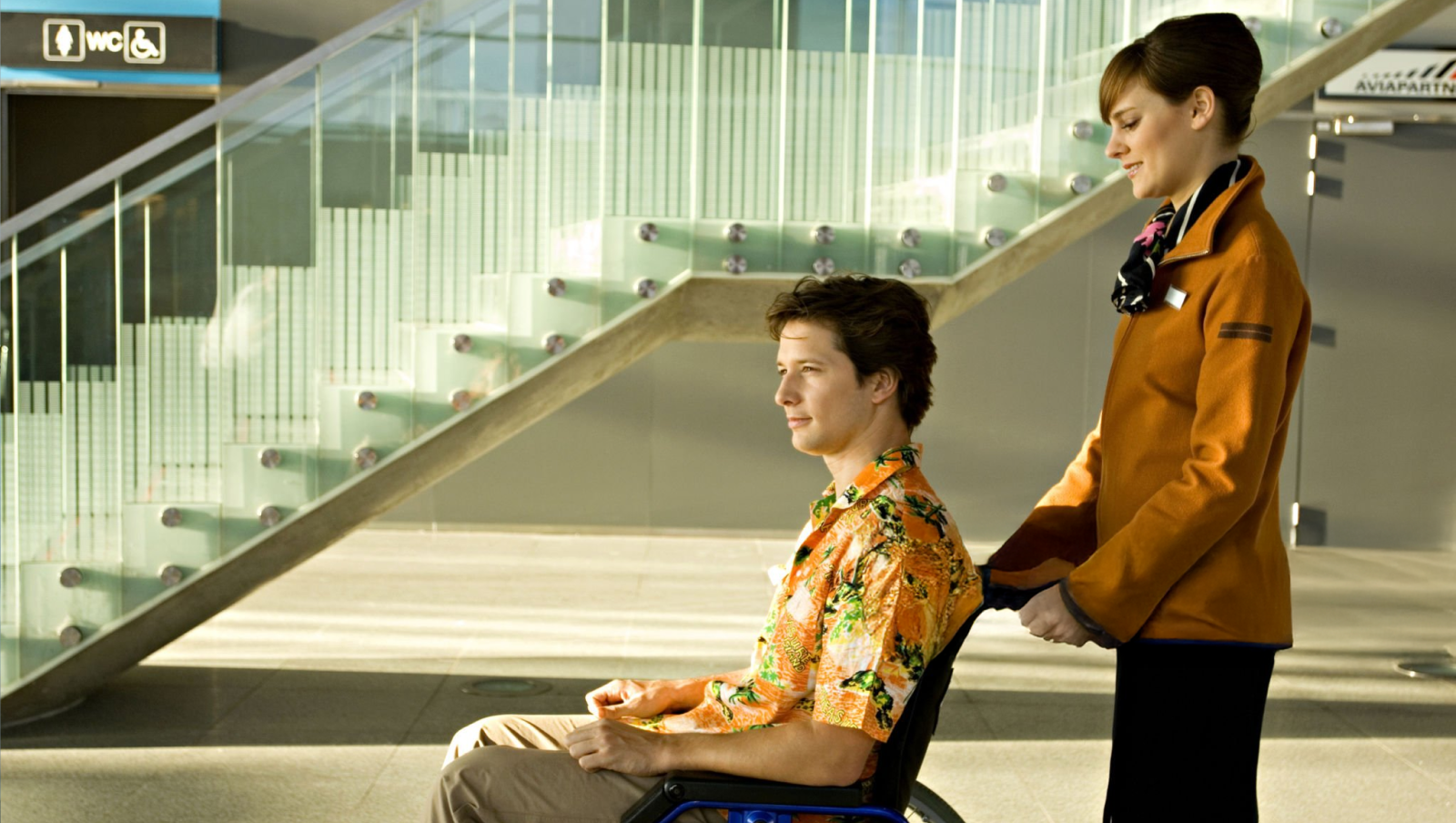Making travel easy and smooth for disabled passengers
Airports are exciting places—where journeys begin and reunions happen. But for passengers with disabilities, they can also feel overwhelming. Crowded...

Airports are exciting places—where journeys begin and reunions happen. But for passengers with disabilities, they can also feel overwhelming. Crowded check-in counters, long walks to gates, confusing signs—everything that seems routine to some can feel like a mountain to climb for others.
The good news? UK airports are becoming more inclusive every year. If you or your loved one needs extra support while flying, this guide will walk you through everything you need to know about accessible airport travel in the UK. From planning to transport to airport facilities—you deserve a journey that’s comfortable, safe, and full of dignity.
Why Accessibility at Airports Still Matters
Accessible travel isn’t just about ramps and wide doorways—it’s about giving people the chance to travel independently and confidently.
But many disabled travellers in the UK still face challenges like:
- Long waiting times for assistance
- Staff who don’t fully understand disability needs
- Difficult navigation inside terminals
- Limited seating or rest areas
A growing number of passengers now rely on disabled passenger support in the UK, and airports are responding with better training, smarter layouts, and more thoughtful services.
Travel should feel exciting—not exhausting. That’s why true UK airport accessibility still matters.
What Assistance Is Available at UK Airports?
If you need extra help, UK airports offer special assistance to make your travel experience more accessible and stress-free. But you have to know what’s available—and when to ask for it.
Here’s what you can expect:
- Mobility assistance at UK airports like wheelchairs and staff escorts
- Reserved seating, priority lines, and help at check-in
- Airport facilities for disabled travellers such as accessible toilets and changing spaces
- Visual, hearing, or sensory support including hearing loops and quiet rooms
Request support a minimum of 48 hours before departure to avoid delays and ensure smooth arrangements. Do this through your airline or travel agent. Once you’re at the airport, trained staff will guide you from check-in through security, to the boarding gate—and even onto the plane.
Just remember: Not all airports offer the same level of support. Heathrow, Gatwick, and Manchester generally offer better disabled passenger support than some smaller terminals.
Getting Around the Airport with Ease
Even with assistance, large airports can feel overwhelming. Here are simple ways to stay in control:
- Use help points or call buttons if you’re unsure where to go
- Look out for wheelchair-accessible paths and lifts
- Speak to staff right away if your assistance is delayed
- Don’t be afraid to ask for a seat, shortcut, or quiet space
UK airports are working hard to create a smooth airport experience for disabled passengers—but don’t hesitate to ask for more if you need it.
Planning Your Journey: Before You Even Leave Home
A calm journey begins with smart preparation.
Here’s what to do before you even pack your bag:
- Tell your airline about your disability and any special assistance you’ll need
- Bring copies of important documents—like prescriptions or a doctor’s note
- Pack essentials like medicines, snacks, water, chargers, and ID in your carry-on
- Leave early and allow for delays to make the journey smoother.
If you’re travelling with a disability in the UK, the smallest details—like asking for an aisle seat or checking toilet access on the plane—can make a big difference in your comfort.
Transport to and from the Airport: What Are Your Options?
Getting to the airport shouldn’t be a challenge either.
Public transport may be affordable, but it’s not always practical—especially if you use a wheelchair or need help with bags. That’s where a disabled-friendly airport taxi transfer makes all the difference.
Services like Fleeyo offer:
- Wheelchair-accessible vehicles
- Drivers skilled in helping disabled passengers.
- Pick-up from your door to the exact terminal entrance
- Real-time flight tracking to ensure timely drop-off
A pre-booked airport taxi transfer for disabled passengers means no last-minute stress, no worrying about steps or crowding, and no rushing.
What to Do If Things Go Wrong
Sometimes, even the best-laid plans go sideways.
If your assistance is late or missing:
- Ask for help at a desk or help point right away
- Speak to a supervisor if your concerns aren’t addressed
- Contact your airline’s support team for immediate backup
- If needed, file a complaint with the UK Civil Aviation Authority
You have the right to equal service. Knowing your rights helps ensure you’re not left behind—and makes travel better for others, too.
Extra Tips for a Stress-Free Journey
- Arrive early—allow time for assistance setup and security
- Keep all your medications and documents in your carry-on
- Use apps to download boarding passes and track your flight
- Dress comfortably and bring mobility-friendly accessories
- Stay calm—if something goes wrong, help is usually nearby
Every little bit helps in creating a smooth airport experience for disabled passengers.
How Airports in the UK Are Becoming More Inclusive
It’s not perfect yet—but change is happening.
- Heathrow’s sunflower lanyard initiative aids those with hidden challenges.
- Gatwick provides sensory rooms for passengers who need calm
- Manchester Airport is piloting better signage and audio announcements
- All three airports have received positive reviews for UK airport facilities for disabled travellers
These improvements are driven by feedback from real passengers—like you. Every review, compliment, or complaint helps make air travel fairer for everyone.
Conclusion
Airport travel can be busy and unpredictable—but that doesn’t mean it has to be hard.
With the right planning, helpful airport staff, and a reliable airport taxi transfer, your journey can be smooth, respectful, and even enjoyable. The UK is moving toward truly accessible airport travel, and every step you take with confidence makes the road better for others.
So go ahead—book your next trip. You’ve got this.
FAQs
Q1: How do I book special assistance at UK airports?
You can book it directly through your airline, either while booking your ticket or by contacting customer support. It’s best to do this at least 48 hours before your flight.
Q2: Are airport taxis wheelchair-accessible in the UK?
Yes. Many services offer disabled-friendly airport transport in the UK, including ramps, lifts, and professional assistance. Fleeyo is one such trusted option.
Q3: What documents do I need to carry as a disabled traveller?
Bring your passport, doctor’s note (if applicable), list of medications, and any disability ID. Having these ready helps avoid delays.Q4: Which UK airport is the most accessible?
Heathrow, Gatwick, and Manchester consistently rank high for UK airport accessibility. They offer services for both visible and invisible disabilities.







